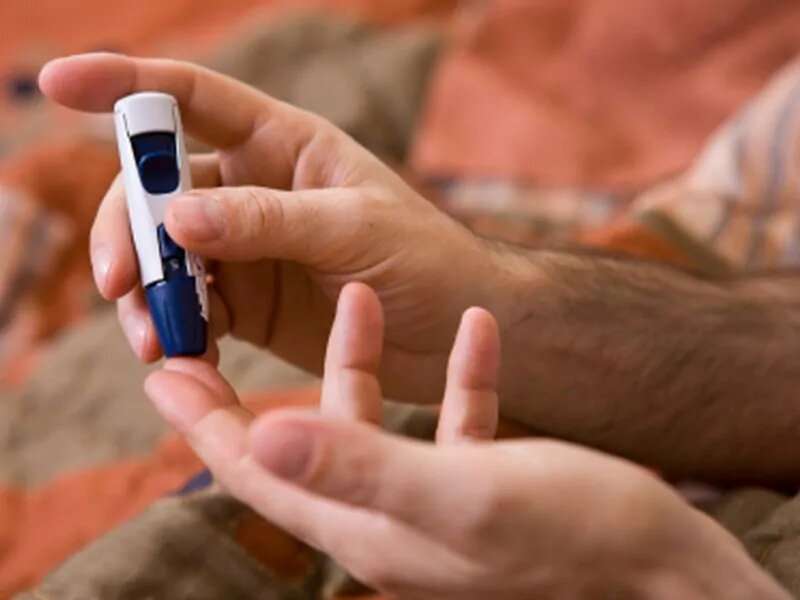Sleep duration tied to adverse measures of glycemia

(HealthDay)—Self-reported short and long sleep are both associated with adverse measures of glycemia among adults with prediabetes, according to a study published online May 10 in Diabetes Care.
Babak Mokhlesi, M.D., from the University of Chicago, and colleagues assessed the effect of sleep disturbances and circadian misalignment on adults with prediabetes. The analysis included 962 overweight/obese adults (55 percent male; mean age, 52.2 years) with prediabetes or recently diagnosed, untreated type 2 diabetes who completed a two-hour oral glucose tolerance test and validated sleep questionnaires.
The researchers found that mean sleep duration was 6.6 hours. More than half of participants reported poor sleep quality (54 percent) and high risk for obstructive sleep apnea (64 percent). Among those reporting less than five hours or more than eight hours of sleep per night, hemoglobin A1c was significantly higher. There was also an association between sleep duration of more than eight hours and higher fasting glucose and between sleep duration of less than six hours and higher body mass index.
"Further research using objective measures of sleep is needed to better
delineate the relationship between sleep and glycemia in adults with prediabetes or type 2 diabetes," the authors write.
Several authors disclosed financial ties to the pharmaceutical industry.
More information: Abstract/Full Text (subscription or payment may be required)
Copyright © 2019 HealthDay. All rights reserved.




















